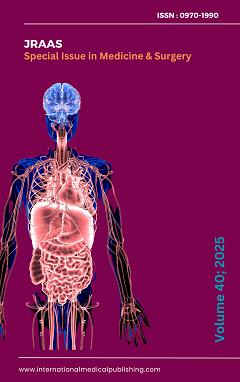Congenital Hyperinsulinaemic Hypoglycaemia
DOI:
https://doi.org/10.71393/qfbqx549Keywords:
Congenital hyperinsulinism ABCC8 gene Variant of uncertain significance (VUS) Neonatal hypoglycaemia Diazoxide responsiveness Genetic counsellingAbstract
Background: Congenital hyperinsulinism (CHI) is the leading cause of persistent hypoglycaemia in neonates and infants. It is most often associated with ABCC8 and KCNJ11 mutations, and early recognition is vital to prevent neurodevelopmental sequelae. Although genetic testing has improved diagnosis and management, the detection of variants of uncertain significance (VUS) presents challenges for interpretation and counselling.
Case Presentation: We describe a male neonate, delivered at 36 weeks by emergency cesarean section for oligohydramnios and abnormal CTG. Soon after birth, he developed respiratory distress requiring NICU admission and ventilatory support. During his stay, he experienced recurrent hypoglycaemic seizures. Biochemical evaluation confirmed hyperinsulinaemic hypoglycaemia. He was treated with diazoxide and hydrochlorothiazide, achieving good glycaemic control. Clinical exome sequencing revealed a heterozygous ABCC8 variant (c.4078G>A; p.Val1360Met), classified as a VUS, associated with leucine sensitive hypoglycaemia of infancy.
Discussion & Conclusion: This case highlights the clinical relevance of integrating genetic results with phenotype and therapeutic response in CHI. The identification of an ABCC8 VUS underscores the limitations of current genetic interpretation and the importance of careful follow-up. Preconception counselling, family testing, and ongoing variant reclassification are critical to guide recurrence risk and optimize future pregnancy outcomes.


